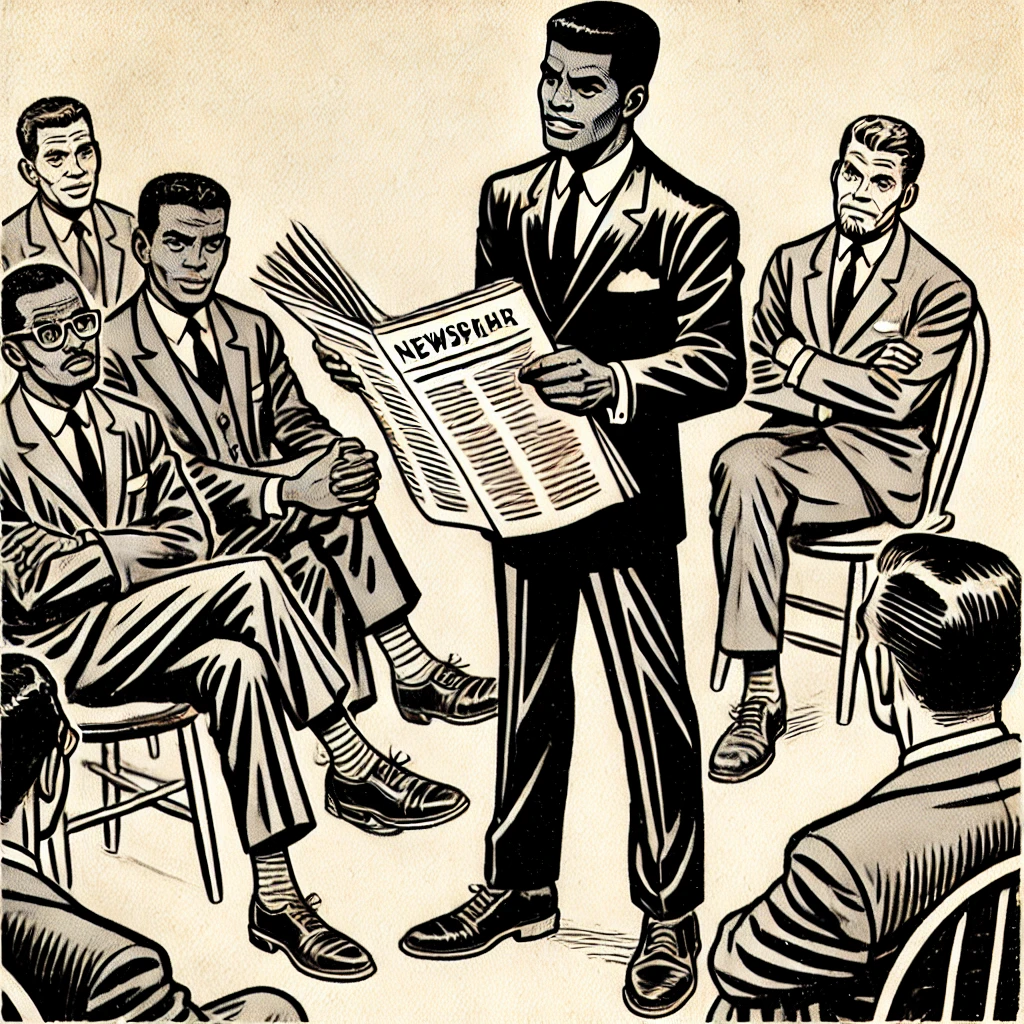Who Was Dr. Louis Charles Roudanez?
Dr. Louis Charles Roudanez was a prominent figure in the realms of medicine, journalism, and civil rights during the 19th century, particularly noted for his efforts in promoting bilingual journalism through the establishment of The New Orleans Tribune. Born in 1823 in New Orleans to a family of mixed African and European descent, Roudanez was deeply influenced by his Creole heritage, which forged his commitment to addressing the social issues faced by the Creole community and African Americans at large.
Roudanez’s education in medicine began in the United States, wherein he became one of the few African American physicians of his time, graduating with a medical degree. This accomplishment not only demonstrated his intellectual prowess but also positioned him as a leader who could advocate for the health and well-being of his community. His medical practice was characterized by a commitment to providing care to those who were often marginalized and underserved. However, his influence extended beyond the field of medicine.
The founding of The New Orleans Tribune in 1864 marked a significant milestone for Roudanez, as he aimed to create a platform that would provide news and information pertinent to the African American and Creole populations. His vision for bilingual journalism was pivotal, as it allowed for the dissemination of ideas and information in both French and English, reflecting the diverse cultural fabric of New Orleans. Through the Tribune, Roudanez championed civil rights, equality, and social justice, addressing critical issues such as racial discrimination and advocating for the rights of newly freed African Americans.
Roudanez’s legacy is imbued with a deep-seated belief in the power of communication and education, which he viewed as essential tools in the struggle for equality. His work in journalism not only illuminated the pressing issues of his time but also laid the groundwork for future generations of journalists to continue this vital mission. His contributions have left an indelible mark on both the history of Louisiana and the broader context of American civil rights, illustrating the impact of his bilingual vision on the discourse surrounding social justice.
The Birth of The New Orleans Tribune
The establishment of The New Orleans Tribune in 1864 by Dr. Louis Charles Roudanez marked a significant milestone in the landscape of American journalism, especially within the context of post-Civil War conditions. Roudanez, an astute physician and visionary, sought to create a platform that would champion the voices of marginalized communities, particularly those of African Americans and the Francophone population in New Orleans. The motivation behind founding this bilingual publication stemmed from the pressing need for a medium that could address the socio-political issues of the time, such as racial discrimination, inequality, and the fight for civil rights.
In a society grappling with tensions and strife between various racial and ethnic groups, Roudanez faced numerous challenges. The period was characterized by instability and a lack of representation for the French-speaking majority as well as the newly liberated Black populace. This landscape made it paramount for Roudanez to navigate complex social dynamics while attempting to cultivate a sense of unity and empowerment through journalism. By offering content in both French and English, The New Orleans Tribune aimed to bridge the gap between the two communities, fostering understanding and collaboration.
Moreover, Roudanez’s determination to launch this publication came at a time when the demand for authentic representation in media was growing. Confronted with hurdles such as financial constraints and opposition from those resistant to change, Roudanez remained steadfast in his commitment. The Tribune not only provided news and commentary on local issues but also highlighted the achievements of African Americans, thereby playing a crucial role in the civil rights movement. Consequently, The New Orleans Tribune served as more than a newspaper; it became a beacon of hope and a vital instrument for advocating social justice in a transformative era for American society.
The Impact of The New Orleans Tribune
The New Orleans Tribune, established by Dr. Louis Charles Roudanez in 1864, played a pivotal role in shaping the landscape of journalism in New Orleans and beyond. Serving predominantly French-speaking Creole communities, the newspaper was instrumental in advocating for civil rights and addressing social issues prevalent during a time of significant racial turmoil. It became a crucial platform for marginalized voices, ensuring that their concerns and aspirations were not only heard but also documented.
The Tribune’s commitment to reporting on civil rights and social justice was remarkable, particularly in the aftermath of the Civil War and the challenge of Reconstruction. Roudanez and his team used the publication to tackle pressing issues such as voter suppression, education equity, and workplace discrimination. This advocacy resonated deeply within the Creole community, fostering a robust sense of identity and cultural pride among its readers. The bilingual format further enriched its outreach, allowing both French and English speakers to engage with the content, and thus broadening its influence.
Moreover, The New Orleans Tribune’s approach to journalism set an exemplary standard for subsequent publications aimed at serving minority communities. By prioritizing inclusivity and representation, the newspaper demonstrated how journalism could be a transformative tool for social change. The legacy of this publication continues to inspire contemporary journalists who strive to uphold the principles of fairness and community-oriented reporting. The Tribune not only chronicled the struggles and triumphs of Creole citizens but also laid the groundwork for future media initiatives focused on advocacy, ensuring that the voices of the marginalized remain prominent in the ongoing discourse surrounding civil rights and social justice.
Roudanez’s Vision for Bilingual Journalism
Dr. Louis Charles Roudanez, a pioneer in the realm of journalism, envisioned a media landscape that embraced linguistic and cultural diversity. His creation, The New Orleans Tribune, exemplified this vision through its commitment to bilingual journalism, offering content in both French and English. This dual-language approach not only catered to the diverse population of New Orleans but also served as a medium to promote cultural integration. By producing media in both languages, Roudanez opened up channels for communication, ensuring that important social and political issues were accessible to a broader audience. This model demonstrated the essential role that language plays in shaping public discourse, fostering an inclusive environment where varied perspectives could converge.
The significance of Roudanez’s focus on bilingualism can be seen in the context of the cultural complexities of the time. New Orleans was a melting pot of different cultures, and by reflecting this diversity in The New Orleans Tribune, Roudanez reinforced the notion that all voices deserve to be heard. His approach emphasized that language is not merely a tool for communication but also a bridge that connects disparate communities. This sentiment remains particularly relevant today, as media continues to shape societal narratives. Contemporary discussions about representation and the importance of diverse voices in journalism echo Roudanez’s pioneering work.
Furthermore, the ongoing relevance of his ideas can be observed in today’s global media landscape, which increasingly values multilingual content as a means of reaching diverse audiences. As societies evolve and become more interconnected, the call for journalists to represent various languages and cultures grows louder. Roudanez’s vision serves as a poignant reminder of the power of language in promoting understanding and dialogue, revealing his lasting impact on both journalism and the broader context of cultural inclusion.








